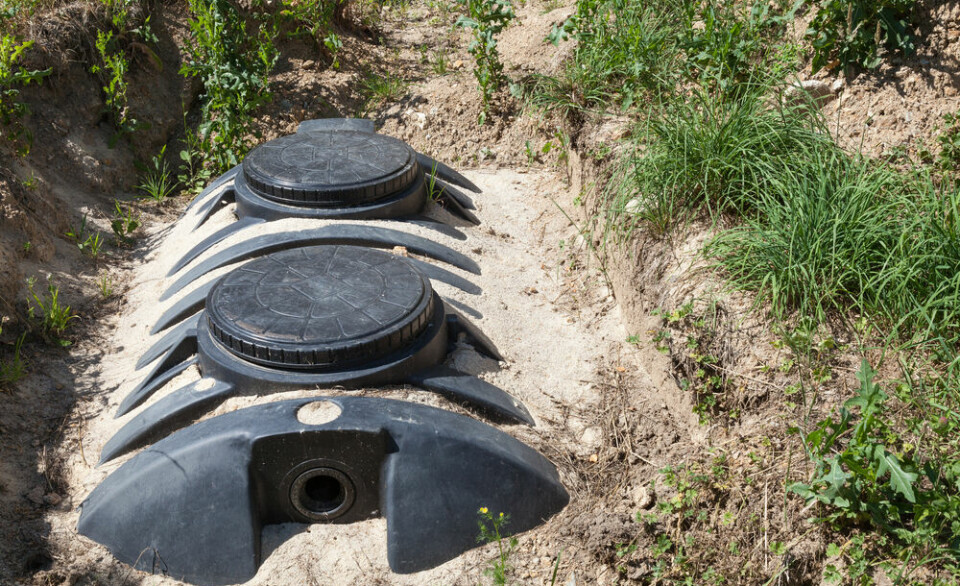-
Camping holidays becoming more popular in France despite challenges
Foreign tourists are driving positive results as people in France tighten budgets
-
Americans moving to France are increasingly choosing Nice
Expat numbers are soaring alongside a boom in US tourism in the city
-
Drivers in France: Look out for this new road sign
The sign aims to encourage more environmentally-friendly driving and road usage practices
Students in France hold major climate change protest
Students across France are being urged to skip classes today (Friday March 15) to join a worldwide “Fridays for Future” march on the issue of climate change.

The global Youth for Climate movement has been gaining traction in France in recent weeks, after notice of today’s major protest was first called for on February 14.
Other protests have taken place on Fridays since, but today is the first major coordinated action.
One website for the movement counts over 220 planned protests across France for today, including a march from 14h in Paris, in front of the ministry for la Transition écologique (Place du Panthéon).
Romaric Thurel, one of the coordinators at Youth for Climate France, has said: “We are aiming for over 500,000 people across 150-200 towns and cities across France.”
The Friday protest comes ahead of tomorrow's planned "March of the Century", another similar climate change protest coordinated to take place on the same day as the gilets jaunes Acte 18 movement in Paris and beyond.
At one demonstration in Nice, student Maëlys Defossez, 16, told Connexion: "We are all concerned and this is only the beginning to our actions. The idea is to make everyone react. We can act every day for the planet. Change has to come from us first and then it will become bigger and make the government act."
YouTube videos from supporters have also been published, explaining their grievances.
One, published as part of Youth for Climate France, said: “We do not want to salvage a planet damaged by previous generations. We, young people, have decided to act for our future. All over the world, students have already started to strike.
“Here in France, we have already been striking every Friday for four weeks. Let’s teach a lesson to our government; let us demand that they are brought to account. Students, workers, unemployed people, retired people, parents, teachers; we need you! Resist with us. This is the most important lesson.”
The group has been inspired by the example of Swedish teenager Greta Thunberg (below), who has been holding her own protests - and gathering support - about climate change in front of the Stockholm parliament since summer last year.
Ms Thunberg was the first to call for a “Fridays for Future” movement, and has since even been suggested as a candidate for the Nobel Peace Prize.
She also attended and spoke as part of the COP 24 summit in December, and made a speech lamenting what she has called the absence of action against climate change by political leaders.
She said: “In 2078, I will celebrate my 75th birthday, and if I have children, they may celebrate this day with me. Maybe they will talk to me about you, and ask me why you did not do anything, when it was still possible to act.”
She added: “We came here today to tell you that change is happening, whether you like it or not. The real power belongs to the people.”
The movement has also gathered pace since the publication - in October last year - of a report by the Intergovernmental Panel on Climate Change (IPCC) on the “impact of global warming of 1.5°C compared to 2°C”. Campaigners have judged that insufficient action has been taken since the report came out.
Since then, the “Fridays for Future” movement has gathered increased support, particularly in the UK, Italy, Switzerland, Germany, Belgium, Holland, Finland, Ireland, Austria, Australia, and Canada.
The movement website has listed over 1,000 events across the world that are set to take place today and on future Fridays, including new movements in China, Iran, Cuba, and Pakistan.
French education minister, Jean-Michel Blanquer, has so far responded by saying that he would like to organise debates on climate change and environmental issues in every French lycée.
He has said: “We must show the importance of this subject...and work towards concrete things that we can put forward, so that students themselves can get involved.”
Yet, Youth for Climate France has deemed his response “a desperate gesture”, and said that his objective is to “stifle the calls that we will be making in the streets on this day.”
Stay informed:
Sign up to our free weekly e-newsletter
Subscribe to access all our online articles and receive our printed monthly newspaper The Connexion at your home. News analysis, features and practical help for English-speakers in France
























